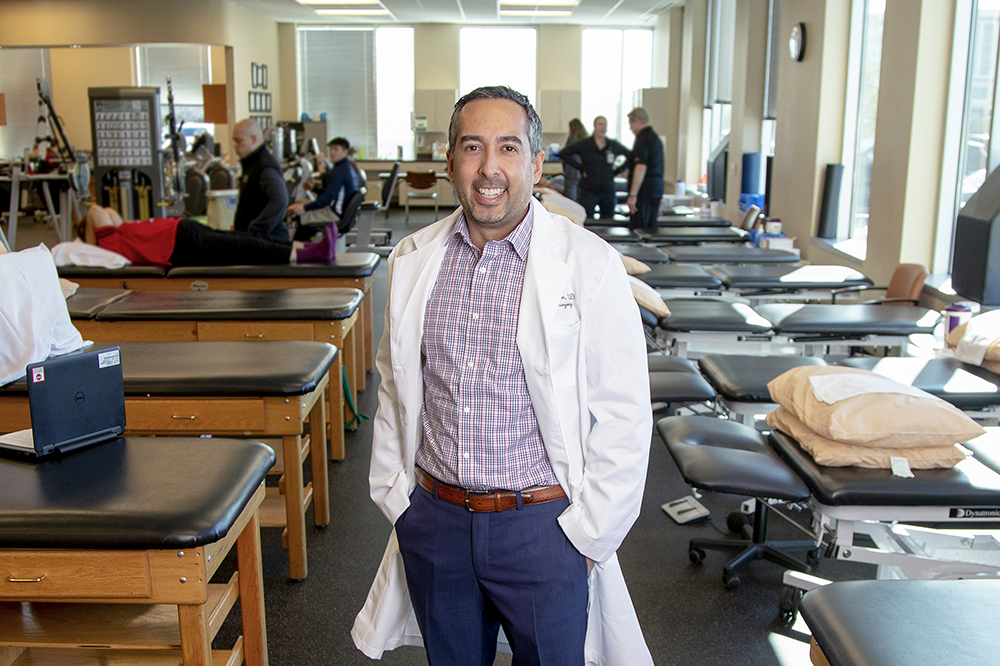
Surgeon and Assistant Professor
Department of Orthopedic Surgery, Sport Medicine
McGovern Medical School, UT Health
My bachelor’s in kinesiology with a focus in athletic training laid the groundwork for the basic science of anatomy and physiology as well as the foundation for the mechanics of how the human body works. The introductory athletic training courses made an impact because they laid a clear path and desire for me to go to medical school and pursue a career in orthopedic surgery with a sub-specialty in sports medicine. The practicum hours allowed me to take the classroom teachings into clinical application.
My bachelor’s in kinesiology with a focus in athletic training laid the groundwork for the basic science of anatomy and physiology as well as the foundation for the mechanics of how the human body works. The athletic training program particularly allowed for hands-on care, and front-line diagnosis and treatment of athletic injuries.
The introduction to athletic training courses taught me the basics of history and physical exams of athletic injuries. These courses made an impact because they laid a clear path and desire for me to go to medical school and pursue a career in orthopedic surgery with a sub-specialty in sports medicine. The practicum hours allowed me to take the classroom teachings into clinical application.
In orthopedic surgery, patients often present with an injury that impacts their daily living, quality of life or ability to perform activities or sports. I am given the ability to diagnose, establish a treatment plan—surgical or not—and return them back to their previous health and activities they enjoy. Nothing is more rewarding than following an athlete from injury to returning to playing the sport they love.
It is surprising how quickly medicine evolves. While the basics of anatomy, physiology and pharmacology will remain the same, technological advances, especially in the orthopedic field, are evolving at a rapid pace. Treatments and procedures that I learned early in my residency have since evolved to newer techniques. The importance of staying up to date with current literature to treat patients is critical as we must never stop learning in order to provide the best care for those we have the opportunity to serve.

